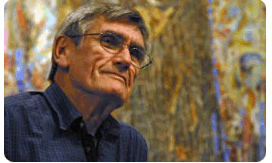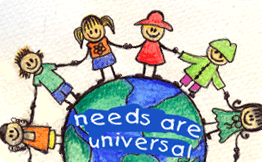
acknowledged Marshall Rosenberg as one of seven men who are "Transforming the World".
The Language of the Heart
Giraffe Language, also known as Nonviolent Communication (NVC) or Compassionate Communication, was developed by clinical psychologist Marshall Rosenberg, Ph.D. NVC evolved from Dr. Rosenberg’s quest to find a way of rapidly accelerating people’s ability to apply peacemaking skills to their personal relationships and in organizations.
Nonviolent Communication contains nothing new. It is based on historical principles of nonviolence - the natural state of compassion when no violence is present in the heart. NVC reminds us what we already instinctively know about how good it feels to make life wonderful for ourselves and others.
NVC creates a path for healing and reconciliation in its many applications, ranging from intimate relationships to families, to informal and formal groups of all kinds including social change organizations, to government and private work settings (common examples include healthcare, social services, police, prison staff and inmates, and schools).
Some reasons why over more than a half-million people globally choose to use Nonviolent Communication (NVC) on a daily basis:
-
• Because NVC offers a clear approach for raising children compassionately.
• Because it encourages mutual respect in student-teacher relationships.
• Because it activates harmony and self-motivated productivity in a wide range of settings (i.e., schools, social change organizations, prisons, and governments) and provides an evident method for reconciling painful personal and professional relationships.

NVC helps us connect with one another and ourselves in a way that allows our natural compassion to flourish.
It guides us to reframe the way we express ourselves and listen to others by focusing our consciousness on four areas:
1. what we are observing...
2. what we are feeling...
3. what we are needing...
4. what we are requesting... to enrich our lives.
NVC fosters deep listening, respect, and empathy and engenders a mutual desire to give from the heart. Some people use NVC to respond compassionately to themselves, some to create greater depth in their personal relationships, and still others to build effective relationships at work or in the political arena. Worldwide, NVC is used to mediate disputes and conflicts at all levels.

